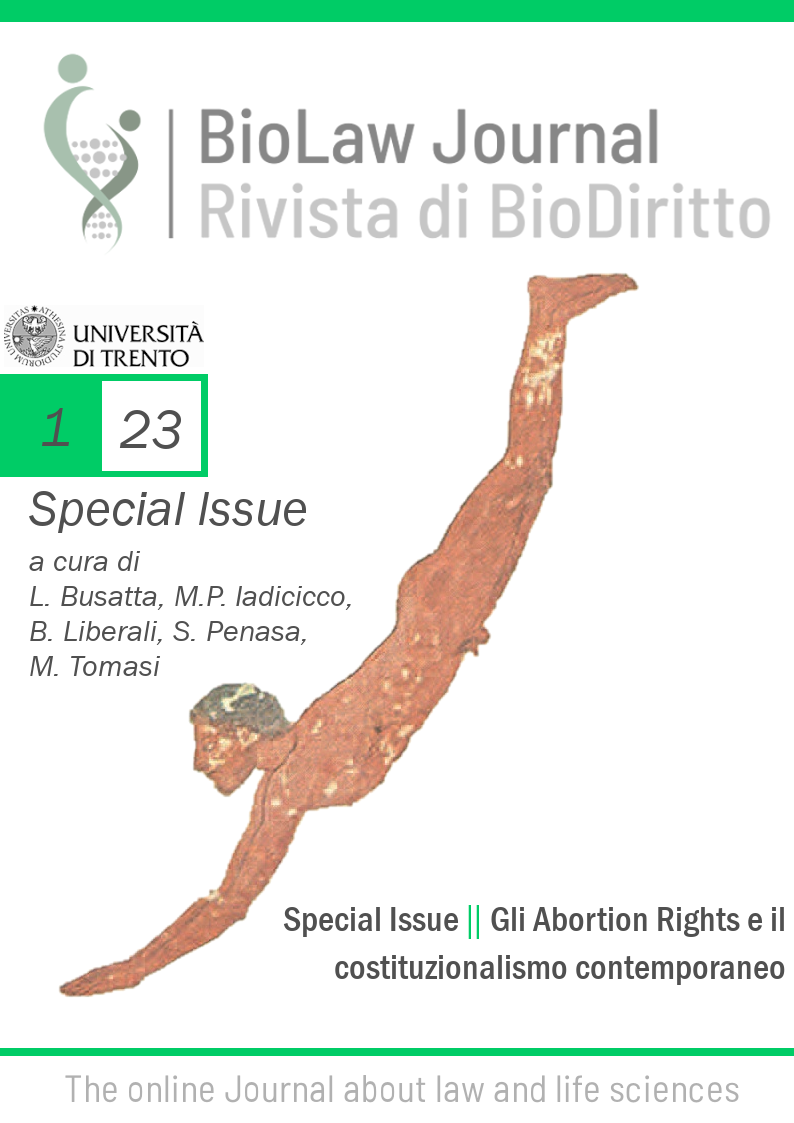Law 194: a reignited debate
DOI:
https://doi.org/10.15168/2284-4503-2555Keywords:
Abortion, family counselling centres, reproductive rights, conscientious objection, pharmaceutical abortionAbstract
Law 194/1978, which protects maternity and regulates the voluntary interruption of pregnancy in Italy, has been at the centre of controversy and debate since its promulgation. The problem was increased after the restrictive measures on voluntary abortion taken in some European countries and above all after the American Supreme Court’s ruling (Dobbs vs Jackson Women Health Organization), which, in June 2022, overruled the historic 1973 decision (Roe vs Wade). The US Supreme Court stated that there is no constitutional foundation for the right to abortion in the US Constitution. Contrary to the USA, where the 1973 ruling was considered untouchable and no federal law followed it, in Italy a ruling by the Constitutional Court, which established the prevalence of the mother’s health over that of the foetus while recognising its rights, was followed by a State law, number 194 of May 1978. It is also worth noting the support of various media and public opinion, which made it possible to reject the abrogative referendum a few years later. With regard to its application, on the one hand, there is the optimism of the Ministry of Health’s annual report, based on the significant decrease in the number of abortions; on the other hand there is the protest over the difficulties raised by women in access abortion services in some parts of the country, linked to the high number of objectors among health personnel. There is also a reduced recourse to the pharmacological practice, which after 30 years of application has now demonstrated its safety, as certified by both the WHO and scientific societies halfway around the world. The law is more than 40 years old and should be the subject of a democratic review based on international experience and scientific evidence, but from a series of media statements and projects presented it seems that it is destined not so much to be repealed, which is legislatively very difficult, but to be emptied.
Downloads
Published
How to Cite
Issue
Section
License

This work is licensed under a Creative Commons Attribution-NonCommercial-NoDerivatives 4.0 International License.





